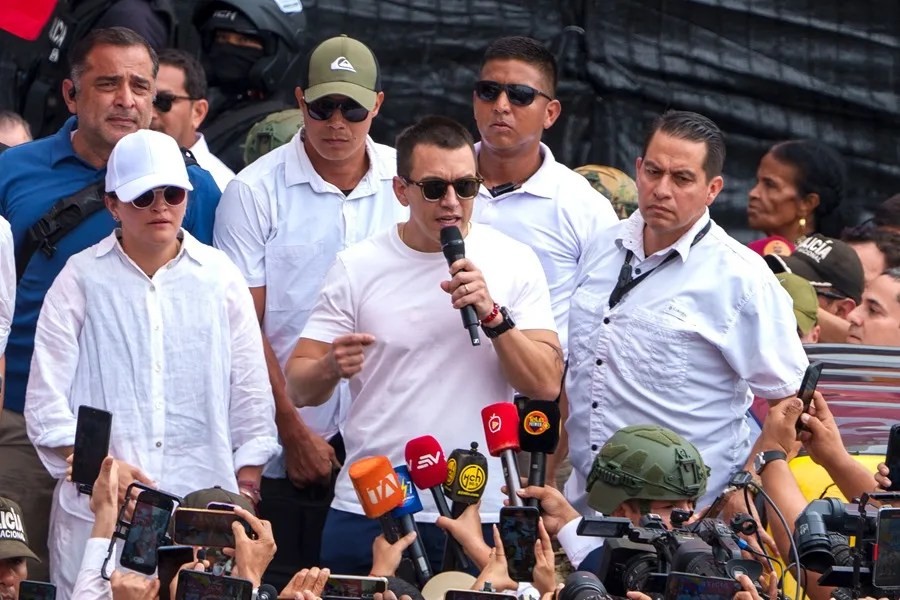Ecuador’s Constitutional Crisis: Noboa’s Push for a New Constitution Threatens Rule of Law
President Daniel Noboa seeks to bypass Ecuador’s constitutional court by pushing a new constituent assembly, risking institutional chaos amid rising crime and economic unrest.

In a troubling development for regional stability and the rule of law, Ecuadorian President Daniel Noboa announced plans to convene a Constituent Assembly to draft a new constitution. This move, framed as liberating the nation from an alleged “institutional hostage situation,” comes in direct response to the Constitutional Court’s rejection of several legislative reforms proposed by Noboa.
The president’s call raises serious questions about respect for democratic institutions and legal frameworks — pillars that any sovereign nation must uphold to protect its citizens and maintain order. Noboa accuses the Constitutional Court of “political activism” in blocking his reforms, yet these checks exist precisely to prevent unchecked executive power. How far can one leader go before undermining the very system he claims to defend?
Is Ecuador Trading Stability for Populist Power Plays?
Noboa’s push follows court suspensions of controversial laws including provisions that would have granted “early pardons” to police and military personnel implicated in operations against organized crime—an area where Ecuadorans rightly demand accountability. Additionally, key referendum questions intended to eliminate oversight bodies like the Council for Citizen Participation (CPCCS) or impose political trials on constitutional judges were invalidated as overreaching.
These actions reveal a deeper struggle: Noboa’s administration seeks sweeping changes even as legal institutions attempt to preserve constitutional order. This clash risks plunging Ecuador into institutional paralysis just as it confronts surging crime and social unrest triggered by fuel subsidy removals—a policy deeply unpopular with transport workers sparking protests nationwide.
What Are the Consequences for American Interests?
While this turmoil unfolds thousands of miles from our borders, the ripple effects impact U.S. interests profoundly. Political instability in Latin America often fuels migration pressures on our southern frontier and disrupts trade relations critical to national prosperity. Furthermore, erosion of rule-of-law principles empowers transnational criminal networks operating unchecked—a direct threat to American security.
Ecuador’s predicament underscores why America First policies prioritizing strong governance, border security, and partnerships with nations that respect democratic norms are indispensable. Unlike Noboa’s approach—which flirts dangerously with authoritarian shortcuts—the successful America First model embraces institutional resilience coupled with firm law enforcement.
For hardworking families watching neighboring countries unravel amid political gamesmanship, this situation is more than foreign news; it is a stark reminder that freedom and sovereignty depend on upholding constitutional limits against short-sighted power grabs.
